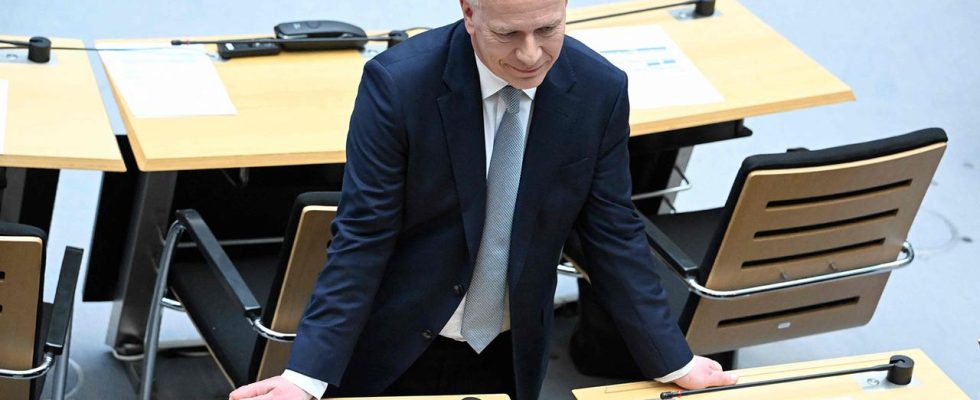The election of the new Governing Mayor in Berlin is taking a dramatic course: The CDU politician Wegner also failed at the second attempt – extremely narrowly. Wegner would have needed 80 votes, he got 79.
The CDU politician Kai Wegner failed at the second attempt in the election for the new governing mayor of Berlin. In the House of Representatives he received 79 votes and thus did not reach the required majority of 80 votes.
In the first ballot, 71 of the 159 members of parliament voted for him. The CDU and SPD, who had agreed to form a coalition in the federal capital, have 86 votes in the House of Representatives. Wegner now has to decide whether to stand in a third ballot, in which a simple majority would suffice for the election as governing mayor. The session was adjourned for an hour and a half.
Wegner would be the first governing mayor from the ranks of the CDU after Eberhard Diepgen, who held this office until June 2001. The new coalition of the CDU and SPD is intended to replace the alliance of SPD, Left and Greens that had governed Berlin since 2016.
scarce member vote at the SPD
Unlike the SPD, there had been no public discussions about the black-red alliance among the Berlin Christian Democrats. At a CDU party conference, the coalition agreement passed without a dissenting vote, while the SPD’s approval in a member vote was significantly lower at 54.3 percent. It had been assumed that some Social Democrats, angry at the black-red alliance, might vote no or abstain.
The CDU emerged as the strongest party from the repeat elections in February, relegating the SPD and the Greens to their places. The previous Governing Mayor Franziska Giffey was then prepared to give up her office for the coalition with Black-Red, which she would have kept if Red-Green-Red had continued. The vote in February had become necessary because there had been numerous organizational breakdowns in the regular parliamentary elections in autumn 2021.

